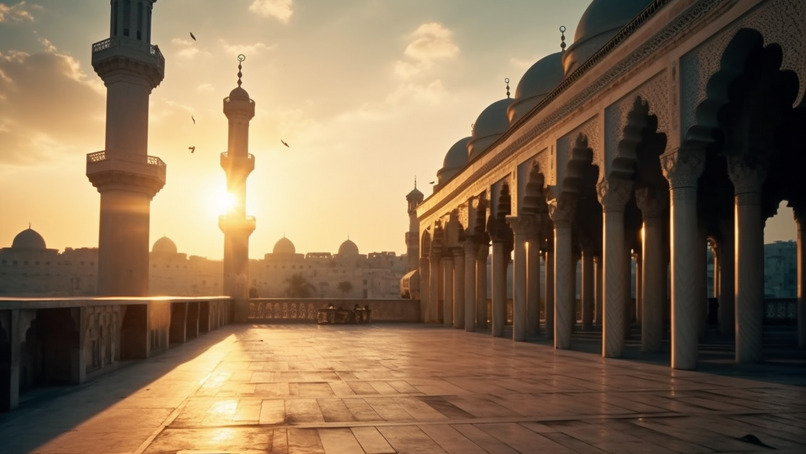
Knowledge , True knowledge of Islam and not the wide spread Tales actively spread in the western world.

What is Islam?
Islam, an Arabic term meaning 'submission', is a monotheistic faith founded in the 7th century CE by the Prophet Muhammad in Mecca, Saudi Arabia. It is the world's second-largest religion, with an estimated 1.8 billion followers as of 2021. Muslims believe in the concept of Tawhid, or the oneness of God, and adhere to a moral and ethical code anchored on the five pillars of Islam: Shahada (faith), Salat (prayer), Zakat (charity), Sawm (fasting), and Hajj (pilgrimage).

Key Aspects of Islam
Peace & Equality: Islam strongly advocates for peace, justice, and equality among all humans. Contrary to prevailing stereotypes, the Quran, Islam's holy book, promotes kindness and generosity towards all. Learning & Knowledge: Islam values knowledge and education, encouraging its followers to seek wisdom. It emphasizes that learning is an obligation for all Muslims, regardless of gender or social status.

Historical Facts
The golden age of Islam, from the 8th to the 14th century, marked significant contributions to arts, culture, science, and philosophy. Islamic scholars preserved and expanded upon ancient Greek and Roman knowledge, laying the groundwork for the European Renaissance.
By understanding Islam beyond western narratives, we can foster a more inclusive, respectful global community. Through education and dialogue, let's debunk misconceptions and celebrate the rich tapestry of this diverse and profound religion. Islam's essence, deeply rooted in peace, equality, and knowledge, is a testament to its enduring spiritual and cultural relevance.

Major Contributions of Islam
One of the often overlooked facets of Islam is its remarkable influence on the world. Islamic civilization has gifted the world a wealth of knowledge in various fields.
Science & Mathematics: Notably, Islam's golden age saw significant advancements in science and mathematics. The numerals we use today, called "Arabic numerals," originated from this period. Muslim scholars also invented algebra and made significant strides in astronomy.
Medicine: In the realm of medicine, Islamic scholars developed surgical tools and techniques, and established the first hospitals. Avicenna, a Persian polymath, wrote the 'Canon of Medicine', a significant medical text used across Europe for centuries.
Art & Architecture: Islamic culture has also produced some of the world's most beautiful and intricate architecture and art, from the majestic Alhambra Palace in Spain to the ornate Blue Mosque in Turkey. Islamic calligraphy, a revered form of artistic expression, showcases the beauty of the Arabic script..

Misconceptions about Women in Islam
A prevalent misconception about Islam is its treatment of women. While cultural practices vary across Muslim-majority countries, it's crucial to distinguish between cultural traditions and religious principles. Islam was among the first religions to grant women rights to inheritance, education, and divorce.

Understanding Jihad
Jihad, a term often misunderstood and misrepresented in the West, doesn't primarily mean 'holy war'. It refers to a Muslim's personal struggle in the path of God, which can be intellectual, spiritual, or societal.

Interfaith Relations
Contrary to popular belief, Islam does not advocate intolerance towards other faiths. The Quran states, "There is no compulsion in religion" (2:256), underlining the principle of religious freedom. History shows instances of Muslims, Christians, and Jews living harmoniously during periods of Islamic rule, such as in Moorish Spain.
As we continue to demystify Islam, it becomes evident that the religion’s core values promote peace, knowledge, and mutual respect. The true face of Islam is one of diversity, compassion, and profound wisdom. The journey to understanding begins with a step towards knowledge and away from unfounded narratives.